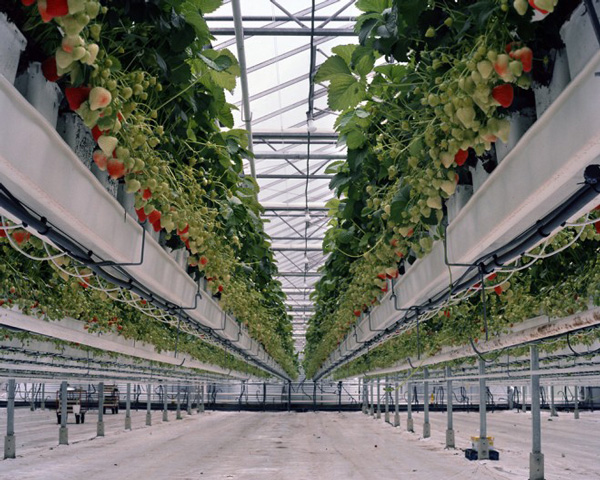Germinator: Rise of the robotic farmers

Stephen Hawking worries about robots bringing about the end of the human race. Sounds crazy, but if Terminator taught us anything, it's to fear the robot uprising. However, while China already has a Skynet, robots in our immediate future seem like they'll be far more helpful than harmful.
From disaster relief to personal companionship and even sex, robots are increasingly being touted as the solution to most of our problems. Now, thanks to a company in Japan, robots may one day be the solution to the world's food problems. And no, not by wiping out the human race.
Also read - Transformers, eat your heart out: giant fighting robots are now real
SPREAD, a Japanese agricultural firm, intends to use robots to revolutionise farming as we know it by opening the world's first fully robotised farm.
The farm is the natural evolution of SPREAD's current operation - an indoor, LED-lit vertical farm in Kameoka, Japan, that produces 21,000 heads of lettuce every day. So yes, it's less farm and more factory. However, their Kameoka plant still has limitations - it requires the inefficient, error-prone and often unreliable technology known as humans.
And humans are so 2015. So, starting this year, SPREAD will begin construction on a massive new plant in Kizugawa that will be fully automated. The new plant will open in summer next year.
Not humanoid robots

While it's tempting to think the farm will be run by RoboCop-styled farmers, the truth is somewhat more mundane. According to TechInsider, they'll "look more like conveyor belts with arms." Even so, they'll be able to plant seeds, water and trim plants and finally harvest them as well. Humans will only be needed to confirm germination. The scaling down of human involvement will allow SPREAD to save almost 50% of labour costs as compared to its Kameoka plant.
The new plant will also outstrip SPREAD's current operation. Set across 4,400 square metres, the new farm is expected to cost close to 2 billion yen. However, the high start-up cost is hardly a deterrent when their projected output of 30,000 heads of lettuce a day is expected to bring in a 1 billion yen windfall in year one of operations itself. This amount will only go up in time as the company expects to scale up production to 500,000 heads of lettuce a day within 5 years.
The farm's indoor setting also allows SPREAD to provide the plants with ideal conditions for growth. No longer will nature's fickleness determine the success or failure of a crop. Now, everything from lighting to water and temperature are controlled.
Come 2017, Japan will play host to the world's first fully robotic farm
The process is also environmentally friendly, with SPREAD's technology allowing for upto 98% of the water used in the process to be recycled. Furthermore the farm also eliminates the runoff of harmful pesticides and herbicides into the surrounding environment. Even the LED and air-conditioning technology, designed specifically for SPREAD are also expected to help the company save massively on energy costs.
The savings will eventually be passed on to the customer as the lettuce becomes cheaper and cheaper to produce. As JJ Price, a spokesperson for the group told TechInsider, "Our mission is to help create a sustainable society where future generations will not have to worry about food security and food safety," Price says. "This means that we will have to make it affordable for everyone and begin to grow staple crops and plant protein to make a real difference."
The real worry here for some, is that factories like these will eventually result in the loss of human jobs as they are replaced by robots. However, perhaps this will just free humans from the menial and manual labour, allowing us to focus on the science behind the processes instead.
In a country like India, where we're making farming an ever more unappealing profession, maybe one day, this will be the future.
Also read - You'd think killer robots would be illegal. Instead, we're building more everyday







![BJP's Kapil Mishra recreates Shankar Mahadevan’s ‘Breathless’ song to highlight Delhi pollution [WATCH] BJP's Kapil Mishra recreates Shankar Mahadevan’s ‘Breathless’ song to highlight Delhi pollution [WATCH]](https://images.catchnews.com/upload/2022/11/03/kapil-mishra_240884_300x172.png)

![Anupam Kher shares pictures of his toned body on 67th birthday [MUST SEE] Anupam Kher shares pictures of his toned body on 67th birthday [MUST SEE]](https://images.catchnews.com/upload/2022/03/07/Anupam_kher_231145_300x172.jpg)






